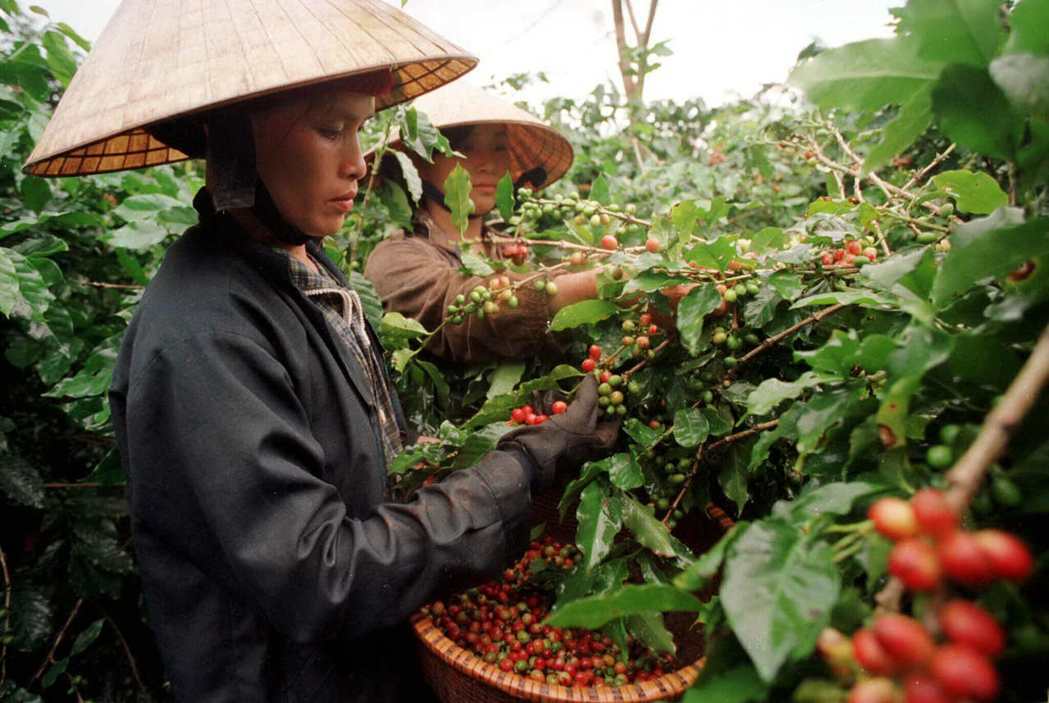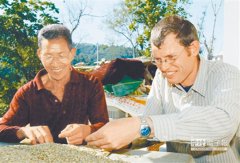Vietnamese ethnic minorities try to reverse the reputation of Vietnamese Coffee
Vietnam's ethnic minorities are trying to grow better-quality organic coffee beans to polish the signboard of Vietnamese coffee. Vietnam, which has a reputation as the world's second-largest coffee producer, sells more than instant coffee, they say.
Roland Liang GE (transliteration, Rolan Co Lieng) shuttles through the greenhouse to check the caramel yellow coffee beans that have been dried in a net for months. She picked up a handful and smelled the beans, which would soon be ground, baked and sold to Vietnam, Japan and Germany.

Roland comes from the traditional small-scale coffee farmers of the Koho 39th Ho, an ethnic group that has lived at the foot of the Great Lilangping Mountains for a century. Roland's parents planted coffee trees, as did her grandparents, who got Arabica coffee seeds from the French in the early 1920s.
Roland, who fell in love with coffee when she was very young, told Deutsche Welle: "growing up, my parents had a cup of Nestle coffee before they went to church at 4 o'clock every morning." I was fascinated by the sweet and rich aroma. After they go out, I always smell the cup and try to touch some coffee with my fingers. "
Today, she turns her passion for coffee into work. She worked with the people of the Koho community to set up cooperatives in an attempt to reverse the reputation of Vietnamese coffee and defend community traditions.
Vietnam is the second largest coffee producer in the world, after Brazil. But coffee lovers often don't like or even hear of Vietnamese coffee. Denis Seudieu, chief economist of the International Coffee Organization, explained that this is because 95% of the coffee produced in Vietnam is robastian beans, which are easier to grow than Arabica beans, but are considered inferior because of their high caffeine content and bitter taste.
Sudierz said: "the market and consumers prefer the flavor and taste of Arabica beans, so Robasta beans often become instant coffee." As far as marketing is concerned, telling everyone that your coffee is made of robasta beans will not produce a positive image, so there are not many advertisements for Vietnamese coffee. "
In the 1990s, Vietnamese farmers made meagre profits from growing coffee beans because the government bought all coffee beans at a single price, a situation that did not change until the private market was opened.
The Koho community used to grow two kinds of coffee beans, but now they only grow Arabica beans in order to make the world know more about Vietnamese coffee and increase profits. Langping Mountain provides fertile soil to grow Arabica beans, while Arabica beans grown at high altitudes are of better quality.
Roland says they grow it organically, not using any chemical crops, but with compost processed from kitchen waste. They also plant many different plants between coffee trees to provide shade and more oxygen.
The Koho community exports these organic coffee beans, but also bakes them themselves, which is rare among Vietnamese coffee farmers. In general, coffee farmers sell raw beans directly to big manufacturers to make instant coffee.
The Koho Community Cooperative was established in 2012 to help more than 60 families sell coffee and promote tourism. All the profits are invested in the village, successfully keeping people who used to work in the city to work in the community. Some Vietnamese coffee manufacturers have switched to selling coffee beans from the Koho community, saying that the Koho community has led Vietnamese coffee to take a successful step.
Important Notice :
前街咖啡 FrontStreet Coffee has moved to new addredd:
FrontStreet Coffee Address: 315,Donghua East Road,GuangZhou
Tel:020 38364473
- Prev

Mr. Coffee Hute is approachable in Pu'er for 10 years.
The mainland is Nestl é's second largest market in the world, and coffee consumption in China has maintained double-digit growth over the past few years. Over the past 30 years, Nestl é has developed the coffee industry in remote rural areas of Pu'er in Yunnan Province and improved the lives of local farmers. Mainland President Xi Jinping visited Belgium in 2014. In a signed article published by the local media, he mentioned Nestl é's Belgian agronomy expert Hute, referring to Pu'er.
- Next

The price of coffee peel is higher than that of coffee beans to become the new favorite of global coffee shops, even Starbucks is no exception!
Professional coffee knowledge exchange more coffee bean information Please note that the price of coffee skins in the coffee workshop (Wechat official account cafe_style) is higher than the coffee beans themselves, now as high as $7 per pound, while the price of coffee beans has fallen to a 2-year low of only $1.20 per pound. Aida Batlle in the mountains around the San Ana volcano (Santa Ana Volcano) in El Salvador
Related
- Unexpected! Ruixing Telunsu lattes use a smoothie machine to foam milk?!
- % Arabia's first store in Henan opens into the village?! Netizen: Thought it was P's
- Does an authentic standard mocha coffee recipe use chocolate sauce or powder? Mocha Latte/Dirty Coffee/Salty Mocha Coffee Recipe Share!
- What is the difference between Vietnam egg coffee and Norway egg coffee? Hand-brewed single product coffee filter paper filter cloth filter flat solution!
- What is the difference between sun-cured and honey-treated coffee? What are the differences in the flavor characteristics of sun-honey coffee?
- How to make Italian latte! How much milk does a standard latte use/what should the ratio of coffee to milk be?
- How to make butter American/butter latte/butter Dirty coffee? Is hand-brewed coffee good with butter?
- Is Dirty the cold version of Australian White? What is the difference between dirty coffee/decent coffee and Australian white espresso?
- Relationship between brewing time and coffee extraction parameters How to make the brewing time fall to 2 minutes?
- Got entangled?! Lucky opens a new store, Mixue Ice City, and pursues it as a neighbor!

